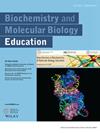论公平课堂的综合取证分析
IF 0.9
4区 教育学
Q4 BIOCHEMISTRY & MOLECULAR BIOLOGY
引用次数: 0
摘要
随着高等教育机构继续投资于帮助教师培养具有公平意识的课堂,人们对调整和改进现行评估结构以更好地反映公平意识的兴趣越来越大。有两个问题对我们如何共同考虑评估设计既提出了挑战,也提供了机会。这些是(a)我们如何定义一个公平思想的课堂(结构、角色、策略)?以及(b)在实施时,怎样才算成功?我将公平思维教学定义为artz - vega等人所描述的一种变体。这是一种课程设计方法,支持学生从当前的准备状态,引导他们清楚地看到自己的潜力。这种思维方式意味着教师必须拥有超越学科专业知识的技能,并将其设计到他们的教学机制中,以培养和维持内在动机。因此,反映这种观点的教学方法的成功结果是更加复杂的。传统上,关于大学教学评估的讨论,即使是被标榜为包容性的方法,仍然局限于与评分内容相关的机制,或者评分是否应该发生。虽然这是一个有用的对话,但它仍然减少了我们设想课程体验价值的方式,只衡量它的一个涉众。定义什么是成功的体验,可以清楚地表明,为了使体验更接近它所希望达到的变革潜力,需要询问哪些具体的事情。在从事公平教学专业发展的10年里,我有幸与教师们交流,他们大多对自己的学生想成为什么样的人抱有美好的、具有公民意识的愿景。在适当的压力下,教师会向学生阐明智力发展之外的目标。他们支持学生成为积极参与的选民、道德驱动的社区成员和具有批判意识的公民的宏伟愿景,这些公民能够将课堂上培养的技能转化为与不断发展的民主中积极参与的参与者相关的行为。然而,要知道这些崇高的目标目前是否得到了尽职尽责的解决,需要的评估机制不仅仅是衡量学生对学科的理解程度。对于课堂教学的传统观点来说,这可能是一个具有挑战性的范例。保守的大学教育模式,即使在“积极的”情境中,也将教师作为唯一的权力中心。从这个角度来看,他们的裁决和权限构成了学生在追求学术卓越的旅程中如何展示自己的所有价值。对课堂体验的一种更有对话性的看法清楚地表明,成功不仅取决于学生的参与,还取决于我们作为教师的教学方式。对于教师来说,这指的是课程设计的机制,用来培养尊重课堂气氛的策略,以及我们如何培养内在动机。更广泛地说,成功也可能受到教师和学生以外的其他环境因素的影响,包括教室的物理设计和布局,以及对学生和教师的卓越的制度支持。换句话说,如果我们假设成功需要教师和学生都表现出最好的自己,那么对成功的评估将不得不询问影响这两组参与者的因素。第一个问题可能不像看上去那么容易回答。在传统观念中,成功可能是通过某种形式的分数分布来衡量的,而这种分布的性质可能取决于教师将他们的课程设置为未来课程的看门人的程度一个公平的心态带来了一个问题,即教师能够在多大程度上创造一个环境,让学生有机会发挥自己的最佳水平。这包括培养归属感和建立社区。课程分析的综合方法意味着测量(例如社区调查[例如,Rovai4]和反思作业[例如,Walton和Cohen5])必须到位,以捕捉课程对人类维度的影响。对课程进行全面检查还意味着找出最近实施中可能不成功的具体特点。例如,如果80%的学生在考试中回答错了某个问题,这并不意味着80%的学生不理解这个概念。这个问题完全有可能是用一种不可靠的方式来衡量理解的。在未来版本的课程中,需要重新评估并进行项目分析,以确保它们确实衡量了讲师的意图。 全面的分析也可能发现更多需要跟进的系统性问题。例如,如果很明显,一些学生的学习方法没有为他们的成功奠定基础,那么,在未来的课程中,教师需要弄清楚学生如何以及在哪里学习更多元认知学习方法的细节。解决这一具体问题的方法包括在课程本身中加入具体的“如何学习”模块,或与其他实体合作,如第一年经验课程和学生成功中心,以确保学生得到支持实施需要将服务网络整合在一起的变革通常超出了单个教师的带宽,最好在同行、部门领导和当地卓越教学中心(CTE)的支持下进行协商和合作。这一概念的两个关键基本组成部分是:(a)承认我们自己的教学决策对取得成功的程度至关重要;(b)致力于改进我们的方法,以便课程的下一次迭代更好地体现我们所寻求的公平心态。虽然在讨论包容性教学的过程中,某种程度上暗示了这种公平思维教学法的反思成分,但明确这一过程尚未成为高等教育如何理解传统课程周期的核心。这些问题构成了一个完整的法庭分析,说明一个公平的导师会如何询问课程体验。如果应用得当,它可以实现几件事。首先,它不假设学生或教师有任何缺陷。它承认两个行动者都是一个复杂系统中的行动者,他们都需要支持,都不完美,但都愿意向体验展示自己。其次,它为教师(作为关键的涉众)提供了一种方法来构建一个特定的途径,说明他们在未来的迭代中如何以不同的方式处理他们的课程。第三,通过赋予超越内容的成功定义特权,它拓宽了如何将大学课程的结果概念化的范式,以融合社会结果(社区意识、归属感)的方式,具有公平意识的教师声称渴望。总的来说,他们推动了定义大学课程成功的论点,而不仅仅是衡量学生。当学生从他们目前的准备状态走向他们真正的潜力时,教师所采用的教学方法对这一旅程的成功至关重要。当我们寻求集体过渡到一种更加公平的课堂方法时,目前的评估模型需要采用一种更加法医化的结构,使我们能够谦卑地询问我们构建经验的方式。法医方法是一种我们拓宽视野的方法,承认我们在这一建设中的关键作用,但也确定未来的机会,采用和实施高保真的方法,越来越多地让学生想象和发挥他们真正的潜力。作者声明无利益冲突。本文章由计算机程序翻译,如有差异,请以英文原文为准。



On the comprehensive forensic analysis of the equity-minded classroom
求助全文
通过发布文献求助,成功后即可免费获取论文全文。
去求助
来源期刊

Biochemistry and Molecular Biology Education
生物-生化与分子生物学
CiteScore
2.60
自引率
14.30%
发文量
99
审稿时长
6-12 weeks
期刊介绍:
The aim of BAMBED is to enhance teacher preparation and student learning in Biochemistry, Molecular Biology, and related sciences such as Biophysics and Cell Biology, by promoting the world-wide dissemination of educational materials. BAMBED seeks and communicates articles on many topics, including:
Innovative techniques in teaching and learning.
New pedagogical approaches.
Research in biochemistry and molecular biology education.
Reviews on emerging areas of Biochemistry and Molecular Biology to provide background for the preparation of lectures, seminars, student presentations, dissertations, etc.
Historical Reviews describing "Paths to Discovery".
Novel and proven laboratory experiments that have both skill-building and discovery-based characteristics.
Reviews of relevant textbooks, software, and websites.
Descriptions of software for educational use.
Descriptions of multimedia materials such as tutorials on various aspects of biochemistry and molecular biology.
 求助内容:
求助内容: 应助结果提醒方式:
应助结果提醒方式:


